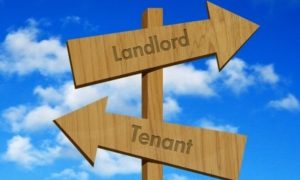Let’s start with some property chain definitions:
- A property chain is a sequence of linked house purchases.
- A property chain starts with a person who is only buying, not selling.
- A property chain ends with a person who is only selling, not buying.
- A chain-free property is when the person buying the property has no other property to sell, and the person selling the property has no other property to buy.
What does No Onward Chain/No Upward Chain mean?
This interchangeable term refers to the fact that the property is ready to sell immediately, with no dependency on the property vendor to buy a new home.
A property may have no onward chain if it is vacant due to being repossessed, or if it is not the property vendor’s primary place of residence. There is also the possibility that the property vendor has moved out or has agreed to move out into rented accommodation to break the chain and entice more buyers and better offers. After all, a property with no onward change can speed up the process of buying a home significantly.
What Does A Property Chain Rely On?
A property chain relies on the efficiency of multiple parties:
- Buyer and Seller
Both the buyer and the seller are expected to provide the solicitor with timely information. For example the property seller may need to complete and return a Home Information Pack (HIP) – a set of documents that provides the buyer with key information on the property. And the property buyer, if a joint purchase, may need to provide information such as a Declaration of Trust. - Conveyancing Solicitors
‘Conveyancing’ is the branch of law concerned with the preparation of documents for the conveyance of property. Conveyancing solicitors are responsible for many things such as raising enquiries/concerns you may have, initiating local searches, checking Land Registry documents and more. Conveyancing can be a complex process, and due to this the timescales of this process can vary based on the competency of the conveyancer. - Mortgage Lenders
If you are mortgaging a property then you will need to have a mortgage formally agreed (not just agreed ‘in principle’). This involves several steps such as a credit score check, further investigations into your circumstances, property valuations and more. - Surveyors
As outlined in the cost of buying a house, when purchasing a property it is always worthwhile having a survey done to ensure it is fit for purpose. Depending upon the type of survey and the level of inspection required, this may take coordination with the property vendor to ensure that somebody is present at the time of inspection.
All of the aforementioned activities take time, and some tasks rely on other tasks to be carried out beforehand. Multiply this by the number of properties in the chain and you can see how the process can become increasingly complex.
What Causes a Property Chain to Collapse?
Many factors can cause a property chain to collapse:
- Funding Issues
If somebody in the chain hasn’t secured funding to purchase the property, either via raising the cash or via a mortgage, the chain can collapse. There is also a possibility that the mortgage lender may under-value the property you are purchasing and hence you may not be able to borrow the full amount required from the mortgage lender! - Property Reports and Surveys
When we looked at the cost of buying a house one of the expenditures for people buying a home was property reports and surveys. If the result of these reports indicate an issue with the property, the buyer may look to pull out of the deal and/or negotiate on the initial offer. - Cold Feet
Some indecisive individuals can get cold feet when buying or selling a home. - Gazundering, Gazumping and Gazanging
These are all underhand tactics put into practise after an initial offer has been accepted on a property. Gazundering occurs when when an offer is reduced by the buyer at the last minute (i.e, close to the exchange of contracts). Gazumping is when the property vendor accepts a higher offer from an alternative, last-minute buyer. And Gazanging is when a property vendor pulls out of a sale entirely, expecting to get a better offer once the market improves.
How can you Prevent a Property Chain from Collapsing?
Sometimes preventing a property chain from collapsing is out of your hands. But if everybody in the chain takes responsibility for their own actions it’s possible to reduce the probability of the property chain collapsing. The following actions can help:
- As the property vendor, ask the buyer for proof of funds upon making an offer such as a mortgage in principle.
- As the property vendor, be honest about the state of your property so that no issues crop up during the home survey/report.
- As the property vendor or the buyer, speed up the sale by being efficient with your communications.
- As the property buyer, insist that the property be taken off the market immediately after offer acceptance.
How To Avoid A Property Chain
There are ways to avoid property chains, although not all of the options below are feasible and largely depend on your current circumstance:
- Buy a ‘new build’ property, a repossessed property or a property at auction.
- Opt for a buyer who is not in a property chain.
- If you have a property to sell, sell it first before you put an offer in on a new property.
- If you have a property to sell, move into temporary accommodation.


